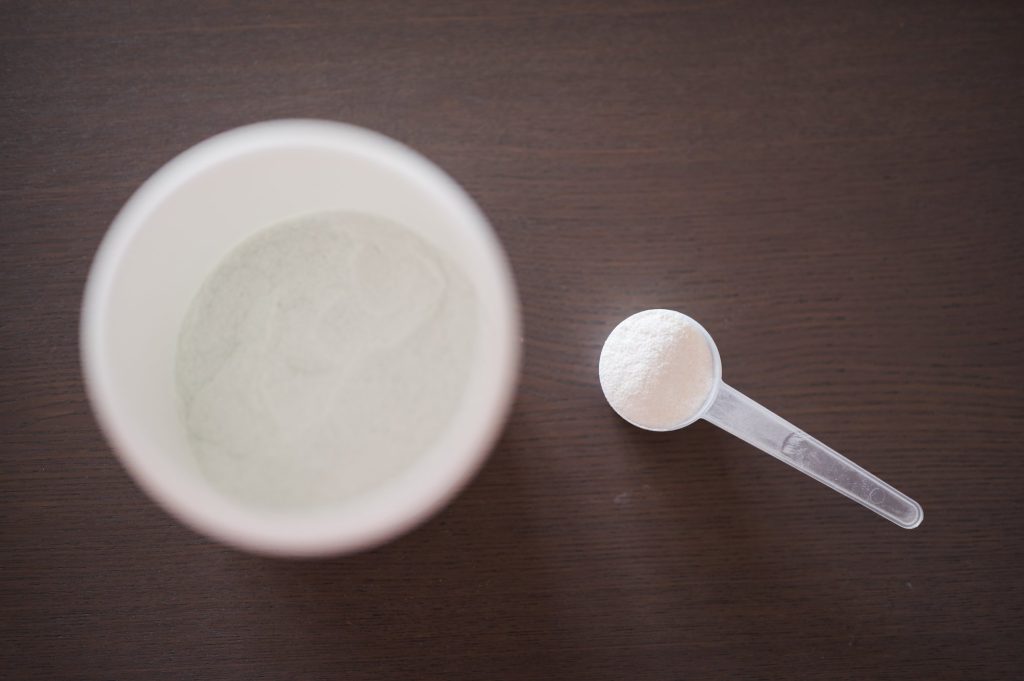Creatine is one of the most well-known and commonly used performance-enhancing supplements. It’s been a favorite among strength trainers, CrossFit athletes, and other high-intensity exercisers for more than two decades. In fact, you can find creatine in many grocery stores and convenience stores now – not just specialty supplement stores. Even though it’s so popular, some people still ask: “Does creatine count as a performance-enhancing drug?” Is creatine a drug at all? To answer this question, we’ll take a look at exactly what creatine is, its benefits, potential side effects, and whether people in recovery should consider using creatine a relapse.
What is Creatine?
Creatine is a non-protein amino acid found in all cells of the body. Creatine is made naturally in the body from amino acids. It is also found in foods such as fish, meat, and eggs. Creatine is used by athletes because it can help the muscles rapidly produce energy when they are contracting during exercise. This type of supplement is available in many forms including pills, liquids, and powders that can be mixed into water or a smoothie. Creatine is one of the most researched supplements available. It has been around since the early 1990s, and research still continues to look at how people can make the most out of this supplement.
What are the benefits of Creatine?
Creatine is one of the best supplements when it comes to strength and muscle growth. A study found that creatine increased strength by 20% and the amount of lean body mass by 10%. It can also help to improve endurance when exercising for longer periods. One study found that runners who took creatine finished their races faster. The benefits of creatine don’t end there. It can also help with overall sports performance. In fact, the International Society of Sports Nutrition considers creatine to be safe, effective, and possibly beneficial for athletes.
Potential Side Effects of Creatine
While creatine is safe when taken correctly, there are still a few potential side effects to be aware of. These side effects include:
- Gastrointestinal upset – Some people may experience stomach pain, indigestion, diarrhea, or nausea. This is more common when people take a high dose of creatine or don’t drink enough water. If you experience any of these symptoms, you may need to lower your dosage or drink more water each day.
- Weight gain – Some people may gain weight when taking creatine. This is due to the extra water that gets stored with the creatine in the muscles. This weight gain can occur from both water weight and extra fat. If you experience weight gain, it’s typically only temporary. You can minimize this by cycling off of creatine every few weeks.
- Cramping – Some people experience muscle cramping while taking creatine. This can be due to dehydration or taking too much creatine at once. Make sure you drink enough water when taking creatine, and don’t take more than the recommended daily dosage.
- Allergic reaction – While rare, it’s possible to have a reaction to creatine. This can include a rash, itching, or swelling. You can minimize the risk of this by taking the recommended dosage and making sure the creatine is clean and not contaminated with other substances.
Is Creatine a Performance-Enhancing Drug?
Creatine is not a performance-enhancing drug (PED), but rather a dietary supplement. Dietary supplements are not regulated by the same standards as drugs and can be more easily bought and sold. That said, creatine and other sports supplements should be taken responsibly. Always choose a reputable brand, and never exceed the recommended dosage. There are many different definitions for what exactly is considered a performance-enhancing drug. However, most definitions include the use of any substance or method that enhances athletic performance. But if the goal of taking creatine is to enhance athletic performance, is it really worth it? After all, performance-enhancing drugs can lead to serious health consequences and even disqualify athletes from competing at all.
Should You Use Creatine While in Recovery?
While creatine itself is not a PED, it can definitely supplement PEDs and help athletes who use PEDs recover more quickly after intense workouts and competitions. This can be beneficial for anyone who exercises intensely and wants to maximize the results from their hard work. However, if you’re in recovery and don’t want to risk taking a PED, creatine could be a good alternative. It can help you recover more quickly after workouts and increase your overall athletic performance. This may also be a good supplement to take if you’re being tested for PEDs like testosterone and steroids during your recovery. There are currently no creatine tests, so taking creatine won’t result in positive test results. And, if you’re cycling off creatine while in recovery, it could help to minimize the amount of water retention you experience while taking it.
Getting Healthy and Sober in a Sober Living Home
If you’re in recovery and want to get healthy, using creatine can be a great way to supplement your workouts and get stronger. Remember that every recovery journey is different, and what works for one person may not work for you. You may want to consult your healthcare provider before taking creatine, especially if you have any health issues or are taking any medications. Your healthcare provider can help you decide if creatine is the right supplement for you and tell you how to use it safely. In addition to taking creatine, you can also get stronger by lifting weights, doing yoga, or even lifting heavy objects around the house. Once you’re stronger, you can tackle any challenge that life throws at you.



